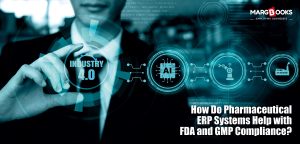The pharmaceutical distribution industry plays a critical role in ensuring that medicines reach pharmacies, hospitals, and other healthcare facilities. In India, wholesale pharmaceutical distributors are vital for the efficient supply chain that ensures patients get the medicines they need. However, the industry is constantly evolving, and pharmaceutical distributors face numerous challenges that impact their operations and profitability.
These challenges range from regulatory hurdles to technological advancements. This blog will delve into the common challenges faced by wholesale pharmaceutical distributors today and how leveraging technology like pharma distribution software can provide solutions.
Key Challenges Faced by Wholesale Pharmaceutical Distributors
1. Regulatory Compliance and Legal Challenges
India’s pharmaceutical industry is one of the largest in the world, and it is highly regulated by various national and international bodies. Wholesale pharmaceutical distributors must comply with numerous rules and regulations to ensure the legality of their business operations. These include:
- Drug and Cosmetic Act, 1940: Ensures that drugs are manufactured, distributed, and sold according to prescribed quality standards.
- GST Compliance: Pharmaceutical distributors must ensure proper GST filing and adhere to tax regulations, which can vary from state to state.
- Pharmaceutical Licensing: Distributors must obtain the necessary licenses for different types of drugs, including Schedule H drugs, which require additional documentation.
The need to stay updated with ever-evolving regulations and ensure compliance can be a significant burden for distributors, especially smaller businesses.
2. Inventory Management Challenges
Efficient inventory management is one of the most critical factors in ensuring the smooth functioning of pharmaceutical distribution. However, wholesale pharmaceutical distributors face multiple hurdles, including:
- Stockouts and Overstocking: A mismatch between demand and supply can lead to either stock outs or overstocking, both of which can result in financial losses.
- Expiry Management: The pharmaceutical industry deals with perishable products. Medicines have expiry dates, and distributors need to track and manage stocks effectively to avoid wastage.
- Storage Conditions: Some medicines require specific storage conditions, such as temperature-controlled environments. Ensuring proper storage can be a logistical challenge for distributors, particularly in a country like India, where infrastructure in remote areas can be inadequate.
3. Supply Chain and Logistics Issues
Pharmaceutical distributors rely on a smooth and efficient supply chain to ensure that products reach their destination on time. However, issues which are delayed deliveries, transportation bottlenecks, and inadequate packaging can lead to disruptions in the supply chain.
Additionally, the rise of counterfeit medicines poses a risk to the entire supply chain, requiring distributors to verify the authenticity of products at every stage.
4. Price Fluctuations and Profit Margins
Price fluctuations are another significant challenge faced by wholesale pharmaceutical distributors. The prices of raw materials, regulatory changes, and demand-supply imbalances can lead to unexpected price hikes.
Distributors have to navigate this complex pricing landscape while trying to maintain healthy profit margins. This can be particularly challenging when negotiating with pharmacies and healthcare facilities that demand competitive pricing.
5. Managing a Large Number of Suppliers and Clients
Wholesale pharmaceutical distributors often work with multiple suppliers and clients. Managing this vast network of relationships, ensuring timely deliveries, negotiating prices, and maintaining good customer service can be overwhelming. Distributors need to find ways to streamline these relationships while keeping operations cost-effective.
6. Digital Transformation and Technological Advancements
The pharmaceutical distribution sector is undergoing rapid digital transformation. While embracing technology can help streamline operations, it also presents certain challenges. The key issues include:
- Resistance to Change: Many wholesale pharmaceutical distributors, especially in rural or semi-urban areas, still rely on manual processes. Transitioning to automated systems can be a daunting task.
- Data Security Concerns: With the digitization of operations comes the risk of data breaches and cybersecurity threats. Protecting sensitive information, including pricing data, customer details, and inventory levels, is paramount.
How Technology is Addressing the Challenges?
With the increasing complexity of the pharmaceutical distribution landscape, the use of advanced technology has become crucial for overcoming these challenges. Here’s how technology, pharma distribution software, can help wholesale pharmaceutical distributors navigate these obstacles:
1. Streamlining Inventory Management
Pharma distribution software can automate the entire inventory management process, from tracking stock levels to monitoring expiry dates. This reduces the risk of stockouts, overstocking, and expired goods, enabling distributors to make more informed decisions and save on costs. Real-time inventory tracking ensures that distributors can replenish stocks proactively, rather than reactively.
2. Simplifying Regulatory Compliance
Pharma distribution software can help distributors stay on top of regulatory requirements by integrating the latest compliance guidelines and automating document generation for reporting. This ensures that distributors are always up-to-date with legal changes, reducing the risk of penalties or legal action.
3. Improving Supply Chain Efficiency
Through integrated systems, wholesale pharmaceutical distributors can improve the efficiency of their supply chain. Online pharma software helps in tracking shipments, coordinating with suppliers and clients, and managing delivery timelines. Moreover, such software can track the origin of medicines, thus reducing the risk of counterfeit products entering the supply chain.
4. Pricing Optimization and Profit Margin Analysis
Pharma distribution software provides real-time insights into pricing trends and helps distributors monitor price fluctuations in the market. This can be instrumental in price negotiations with suppliers and clients, ensuring that the distributor remains competitive while protecting their profit margins.
5. Data-Driven Decision Making
Online pharma software offers analytics tools that help distributors make data-driven decisions. Whether it’s deciding which medicines to stock based on demand or evaluating supplier performance, pharma distribution software provides actionable insights that improve business operations.
6. Improved Customer Relationship Management (CRM)
Pharma distribution software can also streamline customer relationship management. Distributors can use CRM tools to track client orders, maintain communication, and ensure timely deliveries, which ultimately leads to better customer satisfaction and loyalty.
The Role of MargBooks in Overcoming Challenges
One company that has been making waves in the pharmaceutical distribution sector is MargBooks. Their pharma distribution software offers a comprehensive solution that simplifies the entire distribution process. From inventory management to compliance reporting.
MargBooks’ platform is designed to address the challenges wholesale pharmaceutical distributors face today. Their user-friendly interface and customizability make it an ideal choice for distributors looking to digitize their operations and improve efficiency.
Conclusion
Wholesale pharmaceutical distributors play a crucial role in ensuring the smooth functioning of the healthcare system in India. However, they face a myriad of challenges that can affect their operations, from regulatory compliance to inventory management. Embracing technology, such as pharma distribution software, can significantly reduce these challenges and increase efficiency.
Companies, MargBooks are leading the way by offering solutions that streamline processes and improve profitability. By adopting such technologies, distributors can stay competitive, maintain regulatory compliance, and better serve their clients and customers.




